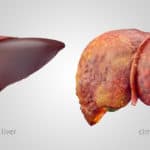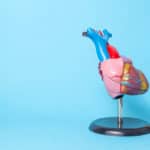Fatigue and Hepatitis C
Although Western medicine has yet to find the reason behind the excessive fatigue associated with Hepatitis C, research has uncovered several contributing factors:
- Poor sleep and lack of rest
- Drug and alcohol use
- Stress and depression
- Other diseases
- Chronic pain
- Lack of exercise
- Poor nutrition
- Not drinking enough water and fluids
- Impaired immune system
- Certain medical treatments (such as interferon therapy)
The following four reasons likely play a part in HCV-related fatigue:
- Energy Storage – Understanding the liver’s role in energy production clarifies how HCV can result in fatigue. One of its many physiological functions, the liver is intimately involved in supplying the body with energy. In addition to its well-known responsibility for filtering the blood, the liver also converts food into glucose, storing it for later use. When the body needs energy, the liver releases stored glucose to provide fuel for creating a burst of energy. By producing, storing and supplying the body with glucose, the liver is a key player in preventing fatigue. A liver unaffected by disease releases glucose between meals, or whenever the cells need nourishment and energy. While a healthy liver maintains a steady level of energy throughout the day, one hampered by advanced disease and scarring has a reduced ability to produce glucose, and less space to store it.
- Interferon – In addition to being the preferred drug treatment for HCV, interferon therapy causes fatigue. This drug is synthesized to match one of the immune system’s naturally occurring interferons. Part of the protection mechanism against infection, interferons are proteins that help the body recognize a foreign substance. Interferon is believed to cause flu-like symptoms, including fatigue, which typically disappears once the treatment is over.
- Ribavirin – As those who have undergone treatment with ribavirin are aware, this medication can cause anemia. A condition where the body does not have enough oxygen-carrying red blood cells, anemia causes substantial fatigue. All the cells in the body need oxygen from red blood cells to maintain their health. During HCV therapy with ribavirin, additional medications may be administered to prevent anemia from occurring.
- Neurotransmitter-Immune Dysfunction – The continued, long-term response of the immune system to chronic Hepatitis C contributes to fatigue. The release of neurotransmitters (chemicals in the brain) is part of a healthy immune system response. When the body is physically or emotionally stressed, the immune system activates, causing the brain to release the appropriate substance for self-protection. Liver disease causes a chronic, uncontrollable stress to the patient, weakening the immune system and decreasing the release of certain neurotransmitters.
In a study led by Steven M. Kerfoot of the Immunology Research Group at the University of Calgary in Canada and published in the January 2006 issue of Hepatology, researchers determined that certain types of liver damage are associated with an immune response affecting the central nervous system. The researchers found that rats with a specific type of liver disease had decreased levels of hypothalamic corticotropin-releasing hormone (CRH), an essential neurotransmitter for activating a stress response. Implicated as a cause of clinical fatigue, scientific studies have found a defect in CRH in people with chronic fatigue syndrome.
Managing Fatigue
Fatigue is a very real and problematic symptom of HCV. While certain lifestyle factors can reduce its impact, most people with Hepatitis C must learn how to manage their fatigue. Being informed about the detrimental effects of alcohol, drug use, poor sleep, dietary habits and a highly stressful life can empower the individual to make positive lifestyle changes. In addition to making healthful lifestyle decisions to reduce fatigue, these changes will also support the liver and strengthen the immune system.
By stepping outside the confines of Hepatitis C’s possible causes of fatigue, scientists have teamed with nutritionists to develop a novel approach to this problem. Through evaluating how to best support the body’s production of energy on a cellular level, researchers found that the energy-producing parts of a cell, the mitochondria, function best when their membrane is fully intact. Combining several nutritional ingredients capable of restoring the mitochondria membrane, NT Factor has been proven to improve energy levels. While taking an all-natural nutritional product for energy restoration must be discussed with a physician, this effective approach has helped many exhausted Hepatitis C sufferers.
In addition to traditional healthful lifestyle approaches, balancing daily activities can help manage fatigue. The following are some helpful tips:
- Try to avoid overloading your day with a busy schedule by prioritizing necessities.
- Work at the time of the day when you feel your best and arrange to do things then.
- When possible, conserve your energy by sitting down to perform activities you typically do while standing.
- Rather than trying to sleep when you are fatigued, rest or do a lighter, easier activity since you will regain more energy from this sort of break.
- Pace yourself by including regular breaks in your day.
- Pass on large, heavy meals in favor of smaller, more frequent ones.
- Since hot temperatures can be draining, take warm showers.
- Establish a pre-sleep routine at night to wind-down and prepare your body for sleep.
If you have HCV and are fatigued, you are not alone. Fortunately, you do have options. Reclaim your energy by supporting your liver and immune system through healthful lifestyle changes and be sure to discuss nutritional supplements containing NT Factor with your physician. While the power to rid yourself of HCV may be just beyond your grasp, you do have the ability to help your body overcome fatigue.
References:
Piche, T, et al., Fatigue is associated with high circulating leptin levels in chronic hepatitis C, Gut, 51, 2002.
www.eurekalert.org, Understanding Fatigue in Chronic Liver Disease, AAAS, 2007.
www.hcvadvocate.org, Easy C Facts, Hepatitis C Support Project, April 2005.
www.hcvadvocate.org, Hepatitis C and Fatigue, Peter Hauser, MD, Hepatitis C Support Project, 2007.
www.healthlink.mcw.edu, Hepatitis C – Or Its Treatment – Can Cause Fatigue, Julie L. Mitchell, MD, MS, Medical College of Wisconsin, 2007.
www.hepatitisc.org.au, Fatigue and HCV, Hepatitis C Council of NSW, March 2004.
www.hepnet.com, Fatigue as a Symptom of Liver Disease, Mark G. Swain, MD, Schering Canada, Inc., 2007.
www.hepnet.com, Understanding how your Liver Works, John Lauerman, Schering Canada, Inc., 2007.
www.natap.org, Fatigue, HCV/HIV Coinfection, Transmission, Disease Progression & Interferon, David Bernstein, MD, National Aids Treatment Advocacy Project, 2007.
www.webmd.com, Managing Hepatitis C, WebMD, Inc., 2007.







